Interested? Here's our online application!
Student and Early Investigator Feature Booklet
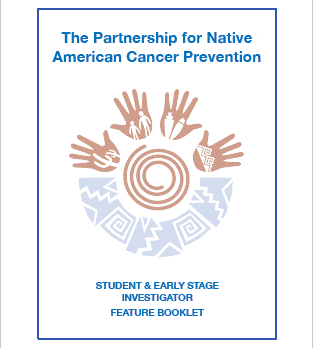 [/block]
[/block]
REC & Bridges YouTube Channel
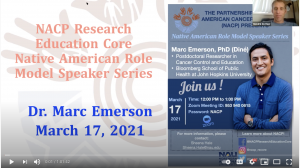 Click here to go to the REC & Bridges shared YouTube Channel to access our Native American Role Model Speaker Series videos and the digital stories of our Bridges students.
Click here to go to the REC & Bridges shared YouTube Channel to access our Native American Role Model Speaker Series videos and the digital stories of our Bridges students.
NACP Research Education on NAUTV
Connect With Us...
Research Education Core
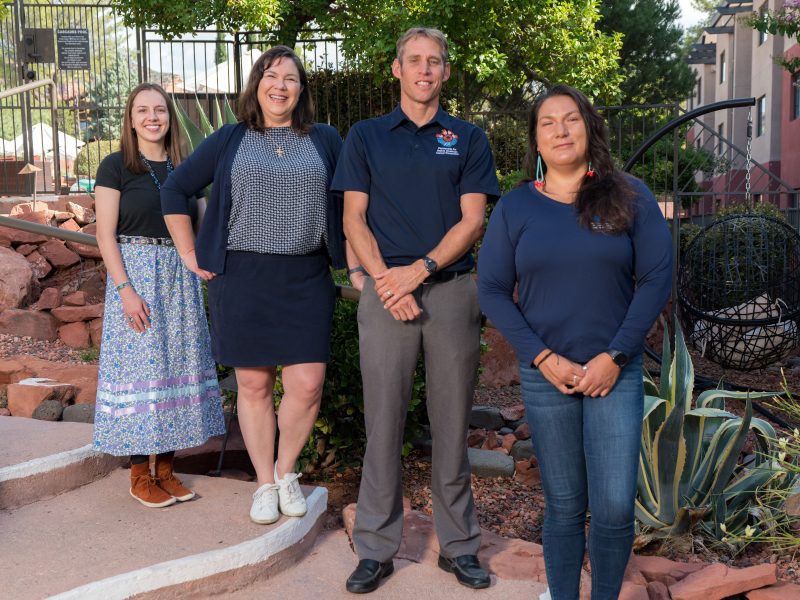
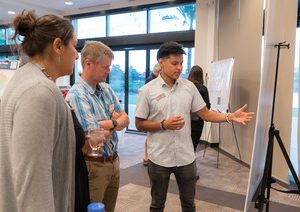
UACC/UA
Jacqui Stork, MPA, Sr. Program Coordinator (jstork@arizona.edu)
Jennifer W. Bea, PhD (JBea@uacc.arizona.edu)
NAU
Tia Gramzinski, BS.Ed, Program Coordinator (tia.gramzinski@nau.edu)
Hendrik De Heer, PhD, Principal Investigator (Dirk.deHeer@nau.edu)
Naomi Lee, PhD, (Naomi.Lee@nau.edu)
Program Overview
Native Americans are the most underrepresented racial/ethnic group among physicians and scientists. According to the CDC, the number one cause of death among Native Americans is cancer. This is in contrast to the majority population for which heart disease is the number one killer. With the large number of tribes in Arizona, the state’s universities are ideally positioned to train a greater number of Native Americans for biomedical careers. It is anticipated that this can be an effective approach to addressing cancer health disparities in Native American communities.
The NACP Research Education Core provides Native American students with mentoring and research experiences of importance to their own communities to help them achieve their training goals for a career in the health sciences. Activities in which NACP trainees engage include:
- Summer programs to transition from high school or community college to the university
- Mentored projects with investigators conducting cancer-related research
- Summer internships at other institutions
- Development of an individualized career plan
- Attendance at national meetings focused on health research in Native American communities
- Mentoring sessions with Native American researchers as role models
- A graduate programs primer that provides guidance on applying for post-baccalaureate degree programs.
Evaluation data shows that the NACP Research Education Core is making an impact. Between 2009 and 2014, the 6-year baccalaureate graduation rate for Native American students in the US was 38%. In contrast, the NACP Native American students had a substantially higher graduation rate of 68%. NACP began another 5-year project period in September, 2014. The Training Core looks forward to continually increasing the number of Native Americans in biomedical careers, so as to reduce the burden of cancer in their communities. The overall goal of the proposed NACP Training Core is to provide Native American students with mentoring and research experience to help them achieve their individualized career development plans in cancer-related research.
Specific Aims
- Mentor Native American students to succeed in their undergraduate studies and expose them to hands-on research and Native American role models.
- Provide activities to successfully transition Native American undergraduate students into advanced degree programs that will train them to address cancer health disparities in their communities.
- Mentor NACP junior faculty and provide cultural competency training in partnership with the Outreach Core for all NACP faculty and staff.
- Create programming and support services to promote applications to national fellowships from Native American graduate students and postdoctoral trainees in collaboration with the GUIDeS shard resource.
- Collaboratively build a curriculum related to cancer health disparities, career development, and cultural competency in research with Tribal nations.
NACP Research Education Core Activities
-
Mentored Reasearch Tab Open
-
Cancer Health Disparities Course Tab Closed
-
My Journey Series Tab Closed
-
Professional Development Tab Closed
Mentored Reasearch Accordion Open
* NACP aims to support Indigenous students to improve their preparation and training for biomedical and behavioral sciences at the PhD level. This includes the continuation of research and exposure to cancer-related careers.
* Student can gain research mentored experience in an NAU lab that focuses on cancer or cancer-related research in Indigenous communities
* Students receive an hourly stipend up to 20 hours per week in the academic year
* Summer salaries are dependent on grant funding
i. Eligibility
* Identify as Indigenous
* *priority is given to Indigenous students but not required
* NAU student
* Interest in pursuing research related to cancer in Indigenous populations
* Complete an application (link)
* Interview with the Tia Gramzinkski and complete an individual development plan (IDP)
ii. Link to Potential Research Mentors
* Jani Ingram – include emails for each
* Priscilla Sanderson
* Heather Williamson
* Fernando Monroy
* Naomi Lee
* Past mentors
* Matthew Salanga
* Dirk De Heer
* Greg Caporaso
* Others – identify cancer-related researchers
Cancer Health Disparities Course Accordion Closed
The goal of this training course is to prepare NACP student researchers and community members about research with Tribal communities. The course will also strengthen their career development as they continue in the research field.
* The course is self-paced and free to anyone interested in the course. Contact Tia.Gramzinski@nau.edu to gain access to the course.
* The course is divided into 3 modules with various chapters. You must first complete a demographic survey. Afterwards, the modules must be completed sequentially that include both a pre- and post-quiz for each chapter with the modules.
i. Demographic survey
ii. Module 1: Cancer 101
iii. Module 2: Research with Tribal Nations
iv. Module 3: Career Development
My Journey Series Accordion Closed
* To provide Native American cancer research exposure to students within NACP through scientific seminars at UA and NAU. This program also offers the opportunity for students to attend and present at other National research-related conferences.
* You can attend the speaker series in-person or via zoom. A meal or snack is provided with each NAU speaker event.
Professional Development Accordion Closed
* NIH Internships
i. The NACP REC staff will assist with identifying research opportunities, review application materials, and coordinate meetings with the program leaders. Below are a few programs REC students attended in the past.
* NCI iCURE – https://www.cancer.gov/about-n
* NINDS Health Disparities in Tribal Communities- https://research.ninds.nih.gov
* NIDDK DSRTP – https://www.niddk.nih.gov/rese
* NIDDK STEP-UP – https://www.niddk.nih.gov/rese
* Conferences – NACP students may receive travel support to present at local and national conferences. In the past, students attended the American Indian Science and Engineering Society (AISES) https://www.aises.org/ and the National Diversity in STEM through the Society for Advancement of Chicanos and Native Americans in Science (SACNAS) https://www.sacnas.org/
* Graduate Primer Premier Program (GPP) – A mini-conference at the UA to provide students in NACP about UA graduate programs in biomedical and cancer research. This includes faculty and UA staff presenting on a variety of topics from admissions to financial aid as well as students touring laboratories and other related facilities, held in conjunction with the Undergraduate Biology Research Program poster session in January.
* UA Intro to Oncology Careers for NA- Students are able to enroll in a one-unit course during the fall semester that is led by faculty or graduate students already conducting research relevant to Native Americans or Native American students working in cancer-related areas.
* Others – the NACP REC will support the professional development of their students. Contact Tia Gramzinski about additional opportunities or to see if NACP can support you in your career.
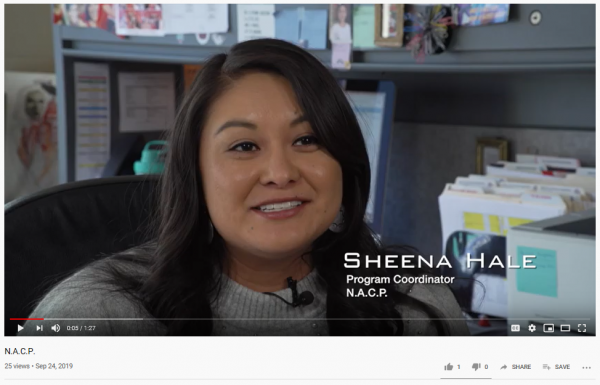
 Research Ed. Core
Research Ed. Core